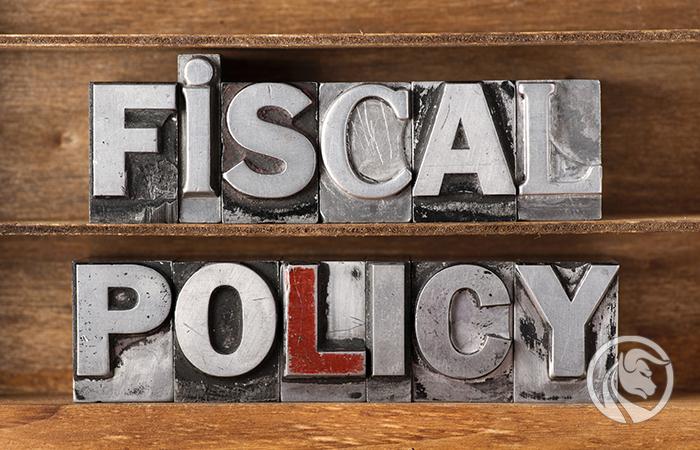Fiscal policy is another front of the fight against coronavirus
Contrary to popular belief, monetary policy does not lack ammunition. EBC it can lower interest rates, implement a special program of long-term refinancing operations (LTRO) for small and medium-sized enterprises - such a program can be announced this week - and even, if necessary, buy debt of banks or listed funds. Federal Reserve also has many possibilities. Article 14 of the Federal Reserve Act, the wording of which was clarified after the global financial crisis, allows for the purchase of almost everything from "Bonds issued under the Law on loans to residential property owners" po "Bills of exchange issued as part of actual commercial transactions" (e.g. commercial papers of enterprises), or even "Gold coins and bars".
However, monetary policy can only provide temporary relief during a crisis. Banks' main role is to provide markets with liquidity to avoid deteriorating financial conditions. Given the evolution of financial conditions in the euro area and the United States, recent Fed monetary policy moves have not yielded much results. Although further monetary policy efforts may be needed, these measures will by no means be sufficient to address the demand and supply shocks associated with the COVID-19 epidemic.
Now more than ever, fiscal policy is needed to overcome the current crisis and stabilize the economy.
This analysis only deals with the situation in the euro area and possible fiscal policy measures in the United States in the coming days.
What is the situation at the moment?
- On the occasion of earlier crises, such as the sovereign debt crisis of 2012, we have found that to avoid spreading the problem (so-called infection) and control panic as quickly as possible on the market, the pace of political response is of key importance. The delayed response at the fiscal level in the euro area gives cause for concern and we are afraid that recovery in this region will be slower than in other countries, such as China, which have taken bold steps to control the coronavirus epidemic.
- Europe remains divided in national thinking and it is doubtful that the euro area countries will be able to agree on a coordinated fiscal package in the coming weeks. The European Union will certainly opt for a minimal approach and can propose a core toolkit of a wide range of measures that individual Member States can implement at national level based on an individual situational awareness. As a complement to this toolkit, the European Commission should also show some flexibility in assessing the stability program up to 2020 - a topic that should be discussed at the next Eurogroup meeting on 16 March. By the way, the Commission should allow for temporary deviations from the fiscal trajectory until the immediate consequences of the epidemic are under control.
- Contrary to popular belief, the euro area has considerable fiscal capacity to implement emergency measures. Even countries with loose fiscal policy according to European standards - e.g. France - have a lot of room for maneuver. In the case of France, the debt-to-GDP ratio is stable and the effective real cost of borrowing is lower than in the United States (-1,5% for XNUMX-year government bond yields). The eurozone would have made a mistake not using the most effective policy tool at the moment.
How to proceed?
- Fiscal incentives should not be targeted at households (because they would directly benefit savings), but at enterprises. Emergency measures may include tax breaks to guarantee the maintenance of as many jobs as possible. One of the benefits of tax rebates is their relatively quick impact on business (the time from implementation of tax breaks to real impact on the economy is usually estimated at 2 to 18 months). The euro area may use as a reference some of the measures recently implemented in Asia, such as the corporate income tax rebate of 25% adopted by Singapore for 2020. A reduction of social security contributions for all enterprises is also possible. In general, a fiscal package corresponding to around 1% of quarterly GDP for the countries most exposed to the coronavirus epidemic would be a good start. In the case of the abovementioned France, this would mean that the government should propose EUR 6-7 billion in incentives.
- If the crisis lasts longer than originally anticipated, the second step would be fiscal stimuli in the form of increased public investment. The time from the implementation of public investments to the real impact on business is usually the longest. However, we consider this to be a favorable political solution, as it would ensure greater visibility for enterprises in the context of procurement for the coming quarters, and thus would maintain the confidence of entrepreneurs and the level of investment.
Source: Christopher Dembik, director of macroeconomic analysis at Saxo Bank






















![Forex Club – Tax 9 – Settle tax on a foreign broker [Download the Application] Forex Club - Tax 9](https://forexclub.pl/wp-content/uploads/2024/02/Forex-Club-Podatek-9-184x120.jpg?v=1709046278)
![Trading View platform – solutions tailored to the needs of traders [Review] trading view review](https://forexclub.pl/wp-content/uploads/2024/03/trading-view-recenzja-184x120.jpg?v=1709558918)
![How to connect your FP Markets account to the Trading View platform [Guide] fp markets trading view](https://forexclub.pl/wp-content/uploads/2024/02/fp-markets-trading-view-184x120.jpg?v=1708677291)
![How to invest in ChatGPT and AI? Stocks and ETFs [Guide] how to invest in chatgpt and artificial intelligence](https://forexclub.pl/wp-content/uploads/2023/02/jak-inwestowac-w-chatgpt-i-sztuczna-inteligencje-184x120.jpg?v=1676364263)


![WeWork – the anatomy of the collapse of a company valued at $47 billion [WeWork, part II] wework bankruptcy story](https://forexclub.pl/wp-content/uploads/2024/04/wework-bankructwo-historia-184x120.jpg?v=1711729561)
![Adam Neumann – the man who screwed up Softbank [WeWork, part AND] adam neumann wework](https://forexclub.pl/wp-content/uploads/2024/04/adam-neumann-wework-184x120.jpg?v=1711728724)





![How to transfer shares to another brokerage office [Procedure description] how to transfer shares to another brokerage house](https://forexclub.pl/wp-content/uploads/2024/03/jak-przeniesc-akcje-do-innego-biura-maklerskiego-184x120.jpg?v=1709556924)

![The most common mistakes of a beginner trader - Mr Yogi [VIDEO] Scalping - The most common mistakes of a beginner trader - VIDEO](https://forexclub.pl/wp-content/uploads/2024/03/Scalping-Najczestsze-bledy-poczatkujacego-tradera-VIDEO-184x120.jpg?v=1711601376)
![Learning patience: No position is also a position - Mr Yogi [VIDEO] Scalping - Learning patience - No position is also a position - VIDEO](https://forexclub.pl/wp-content/uploads/2024/03/Scalping-Nauka-cierpliwosci-Brak-pozycji-to-tez-pozycja-VIDEO-184x120.jpg?v=1710999249)
![When to exit a position and how to minimize losses - Mr Yogi [VIDEO] Scalping - When to exit a position and how to minimize losses - VIDEO](https://forexclub.pl/wp-content/uploads/2024/03/Scalping-Kiedy-wyjsc-z-pozycji-i-jak-minimalizowac-straty-VIDEO-184x120.jpg?v=1710336731)


















